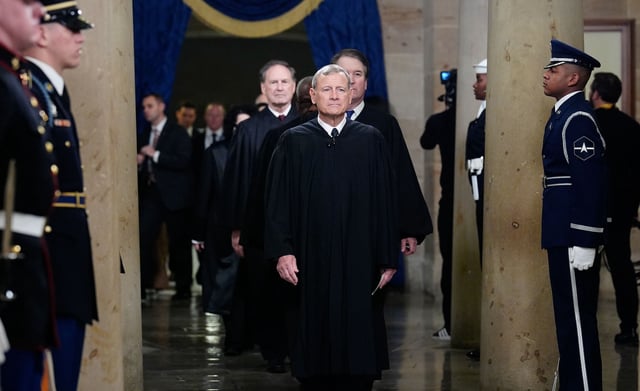Overview
- The Supreme Court’s order directs Louisiana and challengers to submit supplemental briefs by mid-September examining whether the state’s intentional creation of a second majority-Black congressional district violates the Fourteenth or Fifteenth Amendments.
- Justices omitted explicit reference to Section 2 of the Voting Rights Act, indicating a potential shift toward evaluating whether race-based districting itself conflicts with constitutional equal protection and colorblindness principles.
- Lawyers and scholars caution that the case could serve as a vehicle for narrowing or overturning Section 2, which has long been central to securing minority representation through majority-minority districts.
- Chief Justice John Roberts and Justice Brett Kavanaugh are viewed as pivotal swing votes whose positions could determine whether the Court upholds or limits race-conscious redistricting mandates.
- A final ruling in Louisiana v. Callais is not expected until June 2026 and may set precedents affecting other states’ mid-decade redistricting efforts, including Texas proposals.


